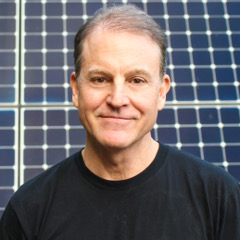Remember the early ‘90s?
The Internet was brand new, having a pager clipped to your belt was a thing, and the Backstreet Boys played on cassette decks everywhere.
Boy, how times have changed – except for the government agency that regulates the state’s largest power companies. The Florida Public Service Commission (PSC) is stuck in the past when it comes to setting energy savings goals, and that has serious consequences for our most vulnerable citizens.
The commission has an opportunity to change its ways, but will it?

It’s well known that energy efficiency is the lowest cost way to meet electricity demand, plus when customers cut energy waste, they save money, which is more important than ever.
More than 600,000 Floridians who get power from the state’s investor-owned utilities are behind on their bills. That’s an immediate crisis, but at the root of the problem is too many Florida families shoulder high energy burdens – where a disproportionate portion of their income goes to paying electric bills. Increasingly, they are forced to choose between having power and paying for food and medicine.
Costly energy waste perpetuates high electricity bills. So why do we waste so much energy in Florida?
One culprit is because the PSC relies on outdated analyses that ignore the main benefit of efficiency – that it saves customers money – in setting efficiency goals for the state’s largest utilities. Florida families pay the 11th highest electricity bills in the country and that ranks near the bottom for energy savings – both in the Southeast and nationally.
The solution is simple. Stop using economic screening practices like the Rate Impact Measure (RIM) test as the primary basis for setting annual utility efficiency savings goals. Treat customer savings as a benefit, not as a cost just because the utility company receives less revenue.
Also, stop eliminating from consideration efficiency measures that pay for themselves in less than two years. This practice automatically excludes the most cost-effective and affordable measures like insulation or LED lighting from utility programs.
Combined, the RIM test and 2-year screen take off the table the solutions commonly used by leading utilities across the country in their energy efficiency programs.
In 2014, these flawed screening practices were used to justify slashing energy savings goals by more than 90%. In 2019 Florida utilities used these same flawed screening practices to argue for energy efficiency goals of zero – that’s right, zero. The commission’s practices are so outdated that no other state relies on them. Clearly Florida’s goal-setting process isn’t working.
Fortunately, it is well within the PSC’s power to modernize its economic screening rules and fix the problems. But will it? The PSC plans to revise its goal-setting rule, but it is not at all clear that it will address its screening practices head-on.
That’s why Southern Alliance for Clean Energy filed a request that the PSC hold one or more workshops to get broad input from the public, stakeholders, and experts who can share information about best practices from other states. We call on the PSC to grant our request for a workshop before the commission’s staff rushes to rewrite the state’s energy efficiency rules.
We must fix the problems that have plagued Florida’s energy efficiency goal-setting process for decades. The 1990s were good while they lasted, but it is time to move into the 21stcentury. Let’s not miss this opportunity to help hard-working families – including the most vulnerable – save money on power bills.
George Cavros is Florida Energy Policy Attorney for Southern Alliance for Clean Energy www.cleanenergy.org. For more details, please read George’s blog.
“The Invading Sea” is the opinion arm of the Florida Climate Reporting Network, a collaborative of news organizations across the state focusing on the threats posed by the warming climate.



